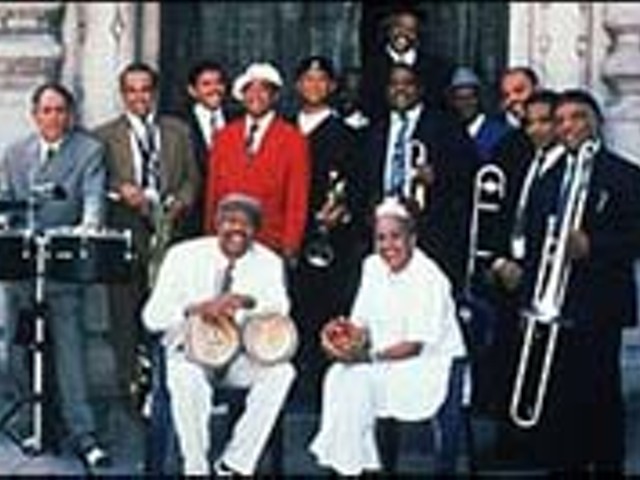Sound Enterprises, also known by its former name, National Sound Corporation, is run out of Ron Murphy’s southwest suburban Detroit home. One of the few survivors in the vinyl-pressing industry, Murphy is eccentric but profoundly dedicated to his work, and there’s a story he has been asked to tell countless times:
“My partner and I started an oldies record store, and we put this equipment in the back, mostly just for show. I didn’t intend on doing any mastering, until Derrick May and Juan Atkins walked in the store.
“They knew what the equipment was, and Derrick May said, ‘Can I cut a master on that?’ He brought in his DAT recorder the next day, and when I asked him, ‘How do you want it cut as far as the EQ?’ he says, ‘Cut it anyway you want to do it.’ So I cut it, and he jumped up and down and said, ‘Now that’s the way a record should sound.’”
The roots of Murphy’s skills go back to his childhood record collection, which he studied passionately — the grooves, manufacturers and labels. “Cutting is not about music,” he explains. “You’ve got to love records.”
All the records mastered by Murphy bear an “NSC” — the abbreviation for the original name of his company — etched into the run-out groove. This trademark, on records by every key name in Detroit techno, has led his work to be known worldwide. It’s something Murphy points out was not accidental:
“When I started cutting the masters, I said I wanted to be proud of what I do. Back in the ’50s, when a lot of the records were getting made, people put things in the records. Some people even had dies made to put their names in there. So I picked NSC.
“Sure enough, it wasn’t maybe five or six months after that, I remember Derrick May coming in, and he said, [gruff voice] ‘Yeah, people been asking us where we get our records cut, but we don’t tell ’em.’ So, I was thinking to myself, [laughs] ‘Yeah, that’s why I’m putting NSC into the lacquer, so eventually someone will catch on.’”
Vinyl pressing is a precise, multistep, physical process. And physicality is exactly why records still endear themselves to audiophiles and DJs alike — because they possess an immediacy and involvement missing from compact discs. Compare putting a needle into the groove of a record to inserting a CD into a player, and don’t forget to factor in the warmth of analog versus digital sound.
Is vinyl convenient? No. But that’s the whole point. Each step in this almost lost art has a narrow margin of error, and necessitates a delicate and attentive eye. Each record takes 45 seconds to get pressed (as compared to the one second in which a CD is born) and a wealth of skills to get done properly.
When a record is created, it first needs to be mastered, which is what Murphy does at Sound Enterprises. His lathe — a machine built in 1939 that looks like a giant art-deco sewing machine hooked up to amplifiers and various production equipment — transfers audio signals into vibrations etched into a lacquer (basically a blank record). From that master, metal plates are made and given to a pressing plant, where the end products are manufactured.
Archer Records, located in the same east Detroit neighborhood since its founding in 1965, is still the only vinyl-pressing plant in Detroit. (Motown Records’ manufacturing plant was in Owosso, Mich., until it burned down in 1972.) Today, Mike Archer, grandson of the company’s founder, does most day-to-day overseeing of operations. He too saw techno’s arrival firsthand:
“Back in 1985 or 1986, I was going to college and I’d work [at the plant] over the summers. And I remember Juan Atkins coming in here, and he wasn’t much older than me. He’d come in here and press some records, and he kept coming back and coming back and coming back. I didn’t understand it at the time, but that’s basically when everything was booming. Of course, everything was going over to Europe. They just have a better appreciation for [Detroit techno] over there.”
Archer is a personable and friendly man in his 30s. Since coming onboard full time, he has made a real effort to improve the quality and customer service of the company that bears his name. The results have been noticeable. As he explains: “Right now, year 2001, we are as busy as we’ve ever been. Probably as busy now as back in the ’70s. And it’s quite amazing to me.”
Along with this work flow comes the challenge of keeping antiquated machinery operational. “It’s a daily battle because it’s all old technology,” he says. “These presses are about 25 years old, and they stopped making them probably in the early ’80s. I monitor the presses every couple of hours. I look at the quality of the product, and if I have to make any adjustments, I do that. Things will break, and if a press goes down you just shut it off and fix it right there. And that’s all you can do.”
He points out that running Archer Records is hard work. Besides the upkeep of the machinery, the factory is loud and gets very hot during the summer. But one gets the sense it’s work he’s happy to take on: “I think it’s cool, because most of the people in music are laid-back. They’re always happy to get their product. They come in smiling. I like the people, actually.”
Metro Times listings editor Aaron Warshaw owns a turntable. E-mail him at [email protected]




